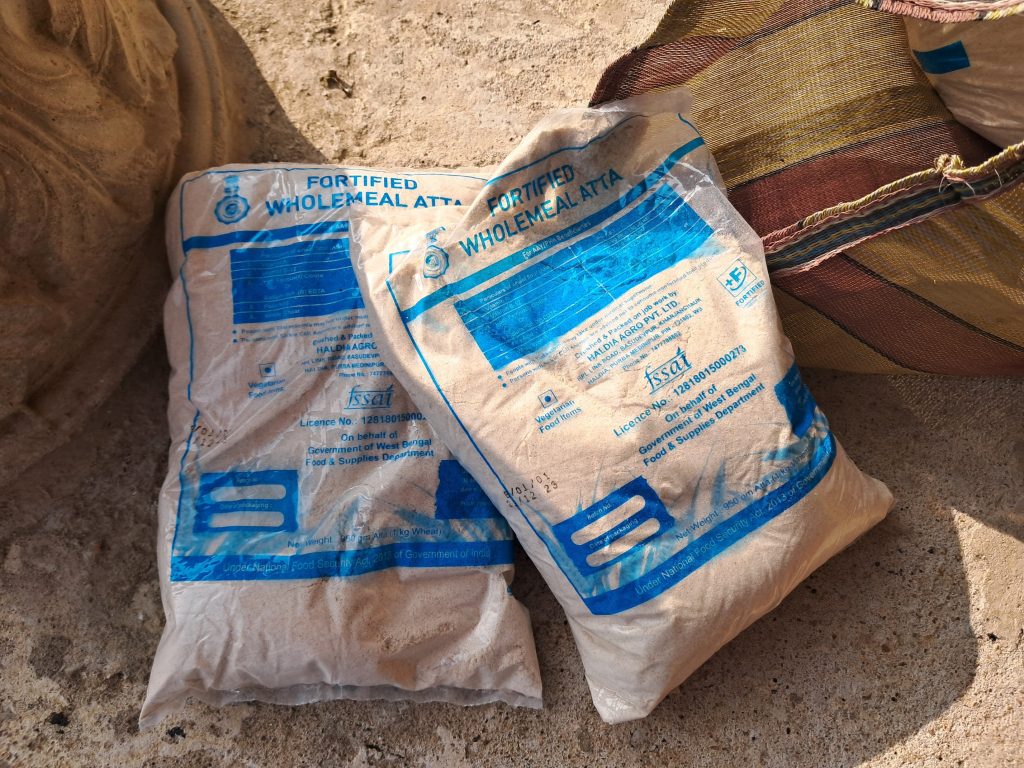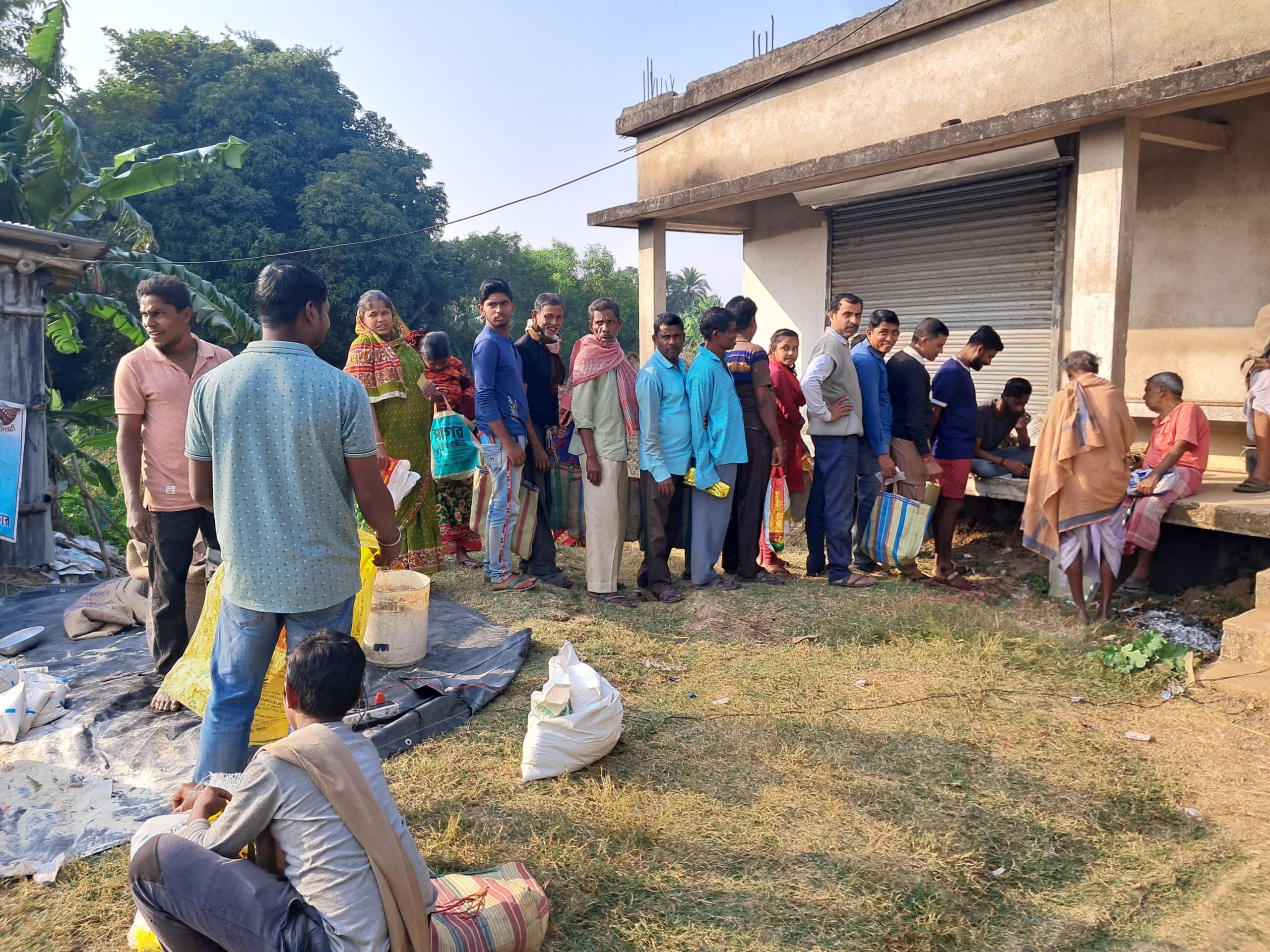Beneficiaries of the Duare Ration Scheme complain about the quality and quantity of wheat flour
By Anubhav Mukherjee | January 7, 2024
Sameeran Tudu, 45, a resident of Kankrakuli village in West Bengal, has to forgo his daily wage of Rs 150 to get the free rice and wheat flour from the nearby government ration camp to feed his family of four.
Tudu, like million others in West Bengal, was expecting the promised door-to-door delivery of state sponsored ration without having to let go of his daily wage. He, however, said it never happened.
Another beneficiary, Kalipada Das, a 62-year-old farmer from Boyeshpur village, 180 km from the city of Kolkata, suffered a brain hemorrhage last year. His son, the only earning member of the family of five, has to skip work a day every month to collect the rations. With his medical expenses of Rs.1.2 lakh a year, losing a day’s wages is a major inconvenience for his family.
On November 16, 2021, the West Bengal government promised doorstep delivery of free ration to 1.5 crore households every month, across the state for the next five years. The scheme aimed at giving easy access to free ration. The West Bengal government allocated Rs 430 crore annually for the Duare Ration Scheme.
Senior government officials said the state has withdrawn doorstep delivery as it is not financially viable with budget allocation lower than the electoral promise made by All India Trinamool Congress (TMC).
“Home delivery of ration has a problem, it is more time-consuming,” Sima Halder, Joint Secretary of the state’s Department of Food and Supplies. “The government opted for mass distribution instead of going door-to-door reasoning.”
The targeted beneficiaries of the scheme either have to collect ration from the camps or directly take it from the Fair Price Shops (FPS). While the government gives Rs 5000 to more than 20,000 FPS every month in the state to deliver ration, the doorstep deliveries does not happen.
“We do get the commission for the doorstep delivery but we use it to cover other expenses,” said Chitralekha Das, an employee at a ration shop in Kankrakuli village.
The government’s monthly data on Duare Ration Scheme shows that close to 7.12 crore beneficiaries opted for this scheme out of the targeted 8.89 crore beneficiaries in December 2023.
The minimum wage rate for employment in agriculture for unskilled labour in West Bengal is Rs.312 per day without food and Rs.290 with food, as per the latest data from the Office of Labour Commissioner, Government of West Bengal.
“The adverse impact will be the total wage rate which he was supposed to receive for that period which he won’t get for that day. That is the economic loss,” said Dr. Rakesh Singh, Vice President of the Indian Society of Agricultural Economics.
Apart from the delivery issues, the scheme, according to the beneficiaries, is neither delivering on quality and quantity.
“The quantity of ration given to us is not enough, we finish the rations after eating just three meals a day, then we have to buy things from outside,” said Manik Malik, another beneficiary from Kankrakuli village, who has a four-member family.

The poor quality of wheat flour is making people sick, said Chandan Kumar Sahoo, another beneficiary from Boyeshpur village.
“I will not feed that quality of wheat flour to my cows,” said Sahoo.
Atleast eight other families in Kumar’s village have complained about stomach aches because of the low quality of wheat flour. The state government, however, does not have any plans to increase the efficiency of the distribution of ration through this Duare Ration scheme at the moment, said Halder.

